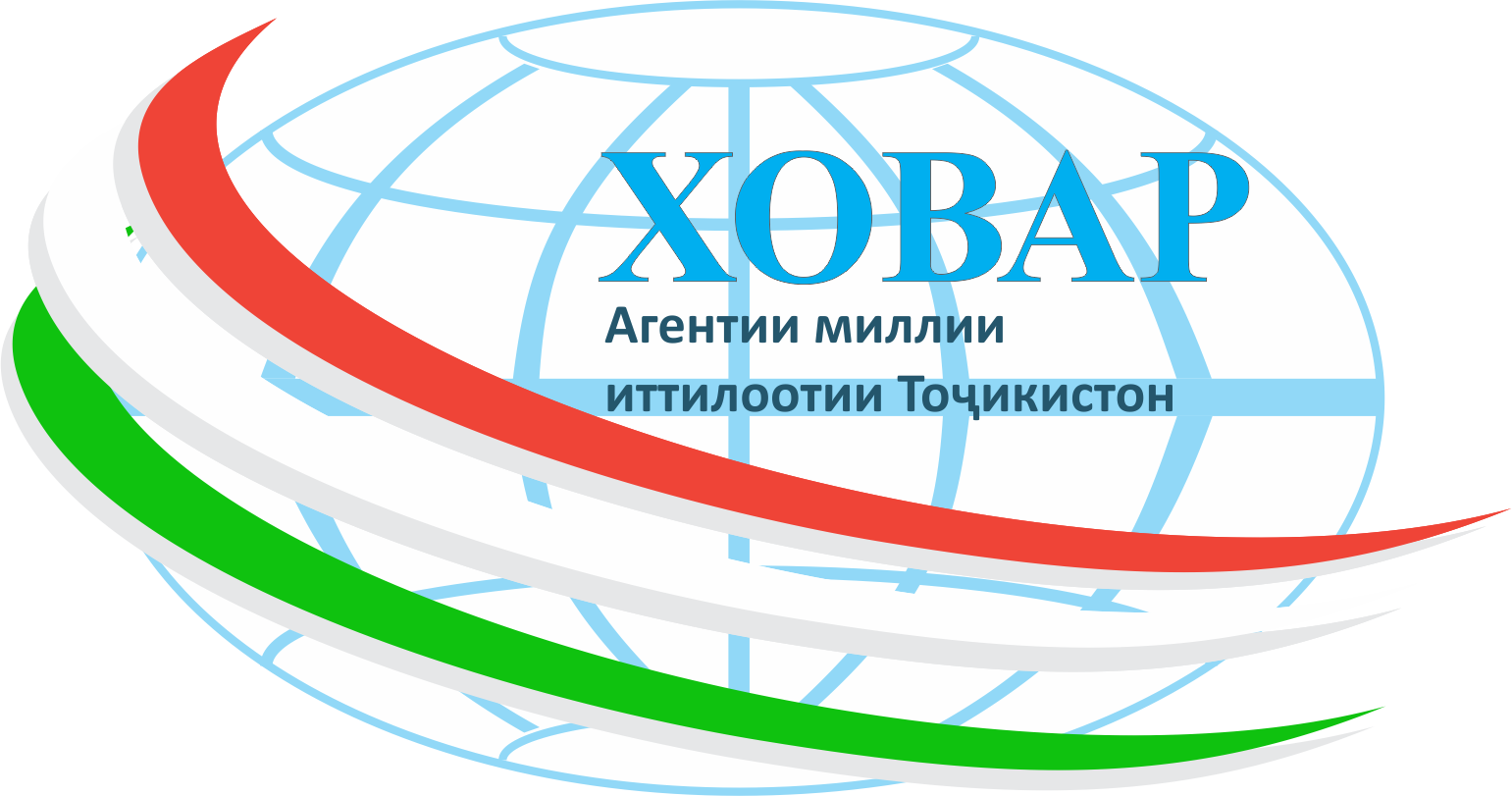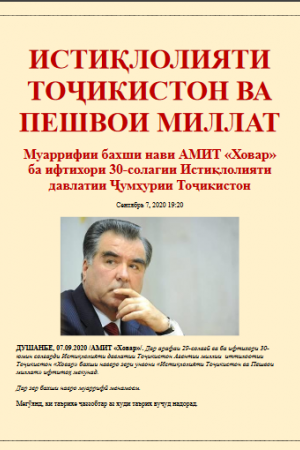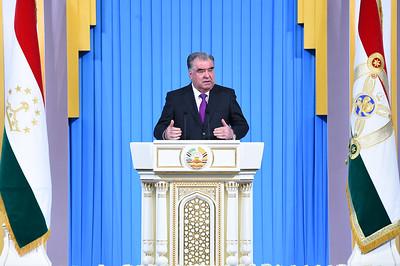The Constitution of the Republic of Tajikistan, adopted in 1994, proclaims the country a democratic and social state that creates conditions for a dignified life and free human development, which contributes to demographic resilience. The Constitution of the Republic of Tajikistan proclaims Tajikistan a social state, meaning that the state creates conditions for a dignified life and free human development.
Demographic resilience is a goal that encompasses the ability to predict demographic shifts, understand their impacts, and develop evidence-based, rights-based policies. This means moving from narrow approaches focused solely on population size to comprehensive demographic and social policies aimed at ensuring prosperity and well-being for all.
The constitution can influence demographic processes through laws regulating social and economic policies, such as family law, maternity and childhood support, immigration legislation, and other measures. These laws can create conditions that influence fertility, mortality, migration, and, consequently, the structure and size of the country's population.
• Family Law: The constitution may enshrine the right to marriage and family, which indirectly affects the birth rate.
• Social Support: The right to social security, healthcare, and support for families with children, enshrined in the constitution, can stimulate the birth rate.
• Migration Policy: Constitutional norms can determine rules for migrants, which affects migration processes and, consequently, the demographic composition of the population.
• Economic Regulation: The constitution can establish a framework for economic policy, which, in turn, can influence the standard of living, mortality rates, and birth rates.
Strategically, the Constitution of the Republic of Tajikistan aims to achieve a demographic optimum without the population falling into a demographic trough. A demographic trough is a period of sustained population decline caused by low fertility and/or high mortality, when natural population growth becomes negative. This phenomenon leads to a shortage of the working-age population and can be exacerbated by factors such as pandemics, economic difficulties, and social change.
The Constitution of the Republic of Tajikistan preserves the family as the fundamental unit of society, granting the right to create a prosperous family. To create a prosperous family, men and women have the right to marry at the age of 18. Article 33 of the Constitution of the Republic of Tajikistan states that the family, as the foundation of society, is protected by the state. Everyone has the right to found a family. Men and women of marriageable age have the right to freely marry. Spouses have equal rights in family relationships and in divorce.
The following article can be cited regarding the focus of the Constitution of the Republic of Tajikistan on demographic resilience: Article 34: Mothers and children enjoy special protection and patronage from the state. Parents are responsible for the upbringing and education of their children, and adult and able-bodied children are responsible for the care and social support of their parents. The state ensures the protection, upbringing, and education of orphans and children with disabilities.
Overall, the Constitution of the Republic of Tajikistan can be viewed as a normative legal document that protects the population of Tajikistan from a demographic crisis in the long term, if appropriately amended to address demographic security. Indeed, V.V. Mamonov rightly interprets demographic security as the protection of everyone's constitutional right to motherhood/fatherhood, to start a family, and the state's obligation to protect these rights at a level necessary to maintain and enhance the nation's reproductive capacity.
References:
1. Constitution of the Republic of Tajikistan, Article 33 and 34
2. Mamonov V. V. Ensuring demographic security is a priority task of the Russian state // Journal of Russian Law. 2002. No. 6 // SPS Garant
Subkhonov Akbar, head of demographic
research department of the Institute of economics and demography
of the National academy of sciences of Tajikistan





 Адиб, олим ва асосгузори адабиёти муосири тоҷик. Аввалин Президенти Академияи илмҳои Ҷумҳурии Тоҷикистон. Муаллифи асарҳои «Таърихи амирони манғитияи Бухоро», «Таърихи инқилоби фикрӣ дар Бухоро», «Намунаи адабиёти тоҷик», «Дохунда», «Ғуломон», «Ёддоштҳо» ва дигар асарҳо, ки ба 29 забони хориҷӣ нашр шудаанд.
Адиб, олим ва асосгузори адабиёти муосири тоҷик. Аввалин Президенти Академияи илмҳои Ҷумҳурии Тоҷикистон. Муаллифи асарҳои «Таърихи амирони манғитияи Бухоро», «Таърихи инқилоби фикрӣ дар Бухоро», «Намунаи адабиёти тоҷик», «Дохунда», «Ғуломон», «Ёддоштҳо» ва дигар асарҳо, ки ба 29 забони хориҷӣ нашр шудаанд. Олим, академики Академияи Илмҳои ИҶШС, арбоби ҳизбӣ ва давлатӣ, муаллифи китоби оламшумули «Тоҷикон» ва зиёда аз 300 асару мақолаҳо.
Олим, академики Академияи Илмҳои ИҶШС, арбоби ҳизбӣ ва давлатӣ, муаллифи китоби оламшумули «Тоҷикон» ва зиёда аз 300 асару мақолаҳо. Шоири халқӣ, раиси Иттифоқи нависандагони Тоҷикистон, Қаҳрамони меҳнати сотсиалистӣ, Раиси Кумитаи якдилии халқҳои Осиё ва Африқо. Барои достонҳои «Қиссаи Ҳиндустон»(1948), «Ҳасани аробакаш», «Чароғи абадӣ», «Садои Осиё»,(1960) «Ҷони ширин» (1963) бо ҷоизаҳои давлатии ИҶШС, ҶШС Тоҷикистон ва байналмилалии ба номи Ҷ. Неҳру (1967) сарфароз шуда буд.
Шоири халқӣ, раиси Иттифоқи нависандагони Тоҷикистон, Қаҳрамони меҳнати сотсиалистӣ, Раиси Кумитаи якдилии халқҳои Осиё ва Африқо. Барои достонҳои «Қиссаи Ҳиндустон»(1948), «Ҳасани аробакаш», «Чароғи абадӣ», «Садои Осиё»,(1960) «Ҷони ширин» (1963) бо ҷоизаҳои давлатии ИҶШС, ҶШС Тоҷикистон ва байналмилалии ба номи Ҷ. Неҳру (1967) сарфароз шуда буд. Президенти Ҷумҳурии Тоҷикистон. 19 ноябри соли 1992 дар иҷлосияи XVI Шўрои Олии Ҷумҳурии Тоҷикистон раиси Шўрои Олии Ҷумҳурии Тоҷикистон, 6 ноябри соли 1994 бори аввал, солҳои 1999, 2006 ва 2013 Президенти Ҷумҳурии Тоҷикистон интихоб гардидаст.
Президенти Ҷумҳурии Тоҷикистон. 19 ноябри соли 1992 дар иҷлосияи XVI Шўрои Олии Ҷумҳурии Тоҷикистон раиси Шўрои Олии Ҷумҳурии Тоҷикистон, 6 ноябри соли 1994 бори аввал, солҳои 1999, 2006 ва 2013 Президенти Ҷумҳурии Тоҷикистон интихоб гардидаст. Нусратулло Махсум (Лутфуллоев) ходими давлатӣ ва ҳизбӣ. Солҳои 1924-1926 раиси Кумитаи инқилобии ҶМШС Тоҷикистон, солҳои 1926-1933 раиси Кумитаи Иҷроияи Марказии ҶШС Тоҷикистон.
Нусратулло Махсум (Лутфуллоев) ходими давлатӣ ва ҳизбӣ. Солҳои 1924-1926 раиси Кумитаи инқилобии ҶМШС Тоҷикистон, солҳои 1926-1933 раиси Кумитаи Иҷроияи Марказии ҶШС Тоҷикистон. Ходими давлатӣ ва ҳизбӣ. Солҳои 1929-1931 котиби Ҳизби коммунистии ҶШС Тоҷикистон, солҳои 1933-1937 Раиси Кумитаи Иҷроияи Марказии ҶШС Тоҷикистон.
Ходими давлатӣ ва ҳизбӣ. Солҳои 1929-1931 котиби Ҳизби коммунистии ҶШС Тоҷикистон, солҳои 1933-1937 Раиси Кумитаи Иҷроияи Марказии ҶШС Тоҷикистон.




